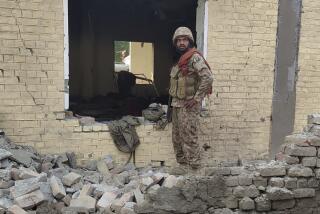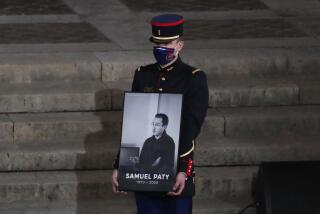12 convicted over 2006 Mumbai train blasts
NEW DELHI An Indian court found 12 men guilty Friday for their roles in bombings on Mumbai’s commuter train network in 2006 that killed 189 people, lawyers said.
One defendant was acquitted by the special court in Mumbai, public prosecutor Raja Thakare told reporters outside the court.
The men were all found guilty of murder and conspiracy among other charges, Thakare said. A conviction for murder can carry the death penalty in India.
“Arguments on sentencing will take place on Monday after which the sentence is due to be delivered,” Thakare said.
“We will pray for the strictest possible punishment ... So many innocent lives were lost, the terror wave had shaken this metropolis.”
The coordinated blasts on July 11, 2006, also left more than 800 injured across the west Indian city.
Those convicted were members of the banned Students Islamic Movement of India (SIMI).
Indian security agencies say SIMI planned the bombings with help from Pakistan’s Lashkar-e-Taiba group, although Pakistani authorities have denied this.
Fifteen people accused of involvement have never been caught, including the masterminds behind the attacks, broadcaster NDTV reported.
“I think this is justice for the people who died and those who were injured,” said KP Raghuvanshi, a former chief of Mumbai Anti-Terrorism Squad who was part of the original investigation.
Seven bombs ripped through the trains during the evening rush hour, as hundreds of thousands of workers returned home.
According to investigators, the high-intensity RDX bombs were packed in pressure cookers. The explosives were all detonated in an 11-minute period, in the areas of Matunga, Mahim, Bandra, Khar Road, Jogeshwari, Borivali and Mira Road, while most of the trains were moving.
The explosives reportedly blew off the double-layered steel roofs and walls of the train compartments.
The special court concluded the trial in August last year after examining 192 witnesses including senior police officials and bureaucrats.
The trial was halted for two years and resumed in 2010 after one of the accused petitioned the Supreme Court challenging the charges.
(c)2015 Deutsche Presse-Agentur GmbH (Hamburg, Germany)
Visit Deutsche Presse-Agentur GmbH (Hamburg, Germany) at www.dpa.de/English.82.0.html
Distributed by Tribune Content Agency, LLC.
More to Read
Start your day right
Sign up for Essential California for news, features and recommendations from the L.A. Times and beyond in your inbox six days a week.
You may occasionally receive promotional content from the Los Angeles Times.






